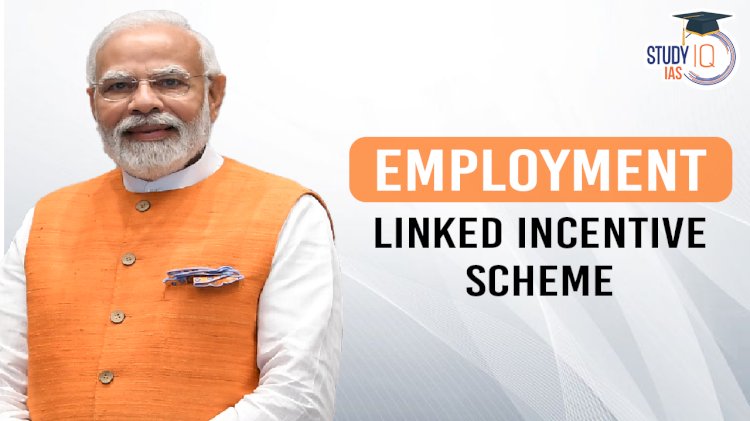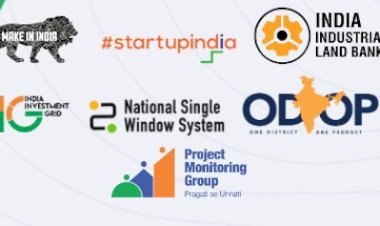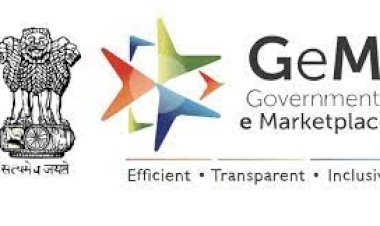Employment Linked Incentive Scheme in Budget 2024
The Employment Linked Incentive (ELI) schemes introduced in Budget 2024 aim to boost formal sector employment through three targeted initiatives. These include incentives for first-time employment, job creation in manufacturing, and support for employers expanding their workforce. With a significant financial commitment of ₹37,000 crore, these schemes are designed to promote job growth, enhance workforce participation, and support economic development.

In the Budget 2024, the government introduced three new schemes aimed at boosting employment and hiring within the formal sector, collectively known as 'Employment Linked Incentive' (ELI) schemes. These initiatives are designed to provide significant benefits to both employers and first-time employees who have enrolled in the Employees Provident Fund Organisation (EPFO).

The Three ELI Schemes
- Scheme A: First-time Employment
- Focus: Encourages employers to hire first-time employees.
- Incentives: Offers up to ₹15,000 in three instalments to new employees who complete an online Financial Literacy course.
- Eligibility: Employees with a monthly salary up to ₹1 lakh, enrolled in EPFO.
- Scheme B: Job Creation in Manufacturing
- Focus: Targets job creation in the manufacturing sector.
- Incentives: Provides financial support to employers who hire at least 50 new workers or 25% of their previous non-EPFO workforce.
- Eligibility: Applies to employees with a monthly salary up to ₹1 lakh, enrolled in EPFO.
- Scheme C: Support to Employers
- Focus: Supports employers across all sectors in expanding their workforce.
- Incentives: Government reimburses EPFO contributions up to ₹3,000 per month for additional employees.
- Eligibility: Employers increasing their workforce by at least 2 employees (for entities with fewer than 50 employees) or 5 employees (for entities with 50 or more employees).
Coverage and Estimated Outlay of the Employment Linked Incentive Scheme
The Employment Linked Incentive (ELI) schemes introduced in Budget 2024 are designed to cover a wide range of sectors and beneficiaries, with a substantial financial commitment from the government to ensure their effectiveness.
Coverage:
- First-time Employment (Scheme A):
- Targets individuals entering the workforce for the first time.
- Applies to various industries and sectors, encouraging a broad spectrum of employment opportunities.
- Job Creation in Manufacturing (Scheme B):
- Focuses on the manufacturing sector, promoting job creation in industries such as textiles, electronics, automotive, and more.
- Aims to boost domestic production and reduce reliance on imports by creating new jobs in manufacturing.
- Support to Employers (Scheme C):
- Provides support to employers across all sectors who are expanding their workforce.
- Includes financial incentives, subsidies, and other forms of assistance to encourage hiring and retention of employees.
Estimated Outlay:
The government has allocated a significant budget to ensure the success of these schemes. The estimated outlay for the Employment Linked Incentive schemes is as follows:
- First-time Employment (Scheme A): ₹10,000 crore
- Job Creation in Manufacturing (Scheme B): ₹15,000 crore
- Support to Employers (Scheme C): ₹12,000 crore
In total, the government has earmarked ₹37,000 crore for the implementation of these schemes over the next five years. This substantial investment underscores the government's commitment to fostering employment growth, supporting the manufacturing sector, and aiding employers in expanding their workforce.
Conclusion
The Employment Linked Incentive Scheme introduced in Budget 2024 marks a significant step towards boosting employment in the formal sector. By targeting first-time employment, job creation in manufacturing, and providing support to employers, these schemes aim to create a more inclusive and dynamic job market. The integration of EPFO enrolment further enhances the benefits, ensuring financial security and social welfare for employees. As these initiatives unfold, they hold the promise of a brighter and more prosperous future for India's workforce.

 Yati Garg
Yati Garg 






















